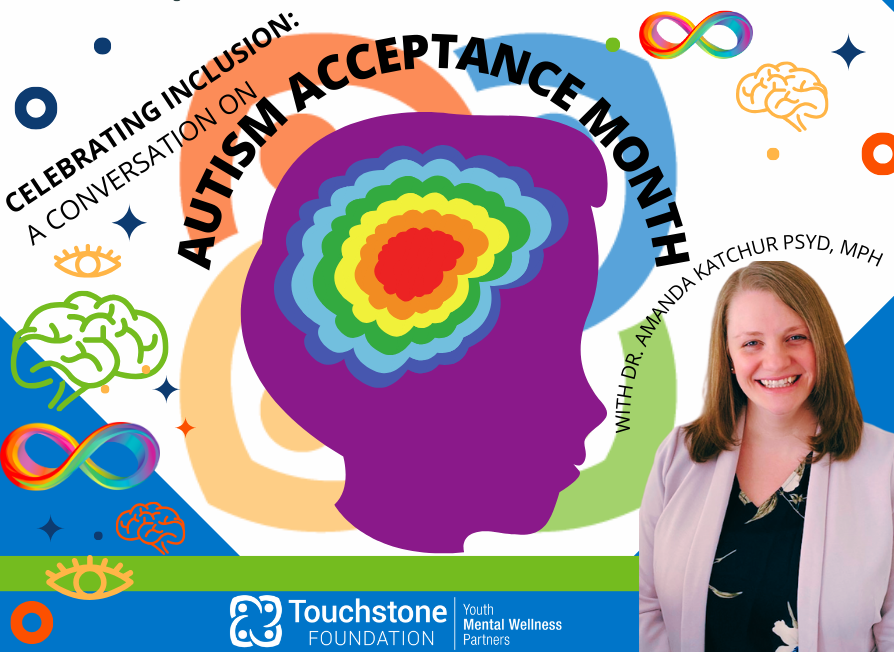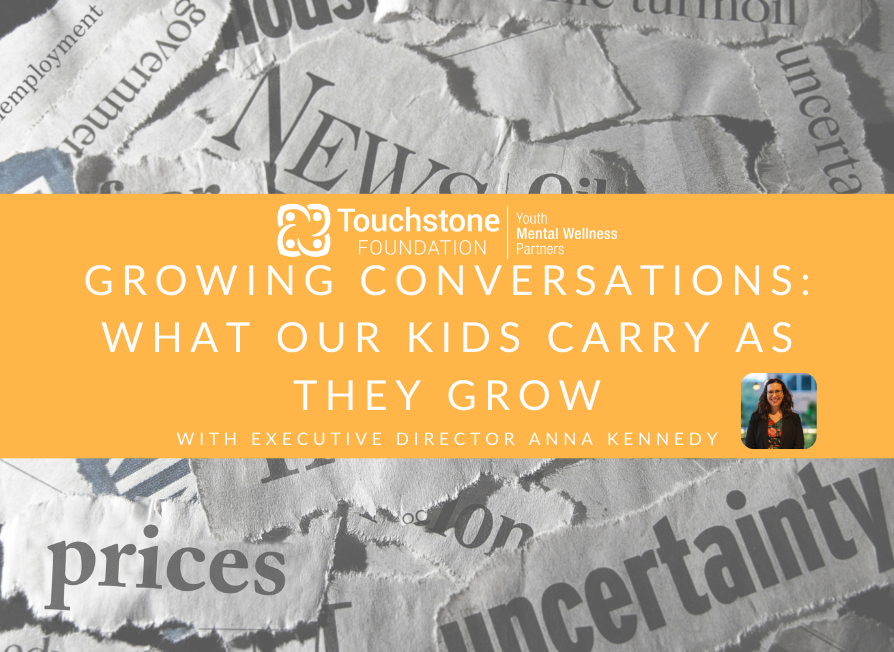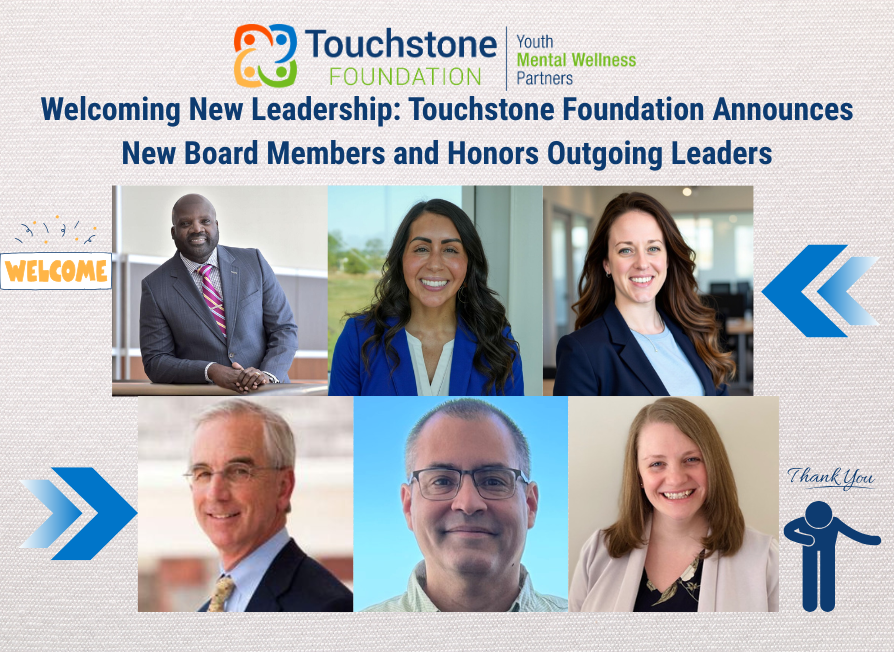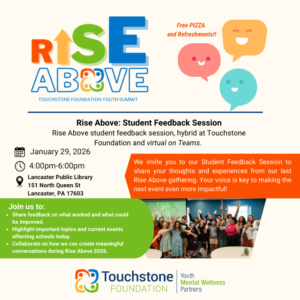
Celebrating Inclusion: A Conversation on Autism Acceptance Month
with Amanda Katchur, PsyD, MPH
Autism Acceptance Month (designated April 1st-April 30th) is more than just a time for awareness—it’s a call to action for education, advocacy, and inclusion. While autism is increasingly discussed, harmful myths and misconceptions persist, often creating barriers to understanding and support for individuals with autism and their families.
To shed light on these critical issues, we spoke with Dr. Amanda Katchur, a Licensed Psychologist and Associate Director at Penn Medicine Lancaster General Health, who holds a PsyD in Clinical Psychology and an MPH in Healthcare Management. With extensive experience in community mental health, she has served as a clinician, supervisor, and program coordinator for school-based therapy programs. A dedicated educator, she has taught psychology at the undergraduate, graduate, and doctoral levels. As an LGBTQ+ affirming clinician, Dr. Katchur specializes in perinatal mental health, trauma care, and advocacy for mental health, healthcare access, and disability rights.
Dr. Katchur is also the parent of an autistic child and has been learning from him and with him for the last six years.
Through her expertise, we explore ways to challenge stigma, support youth with autism, and foster a more inclusive community.
Addressing the Truth and Challenging Stigma
Truth #1
“Autism is about brain differences.”- Dr. Amanda Katchur
One of the biggest barriers autistic individuals face isn’t their diagnosis—it’s the misconceptions surrounding it. The first misconception Dr. Katchur debunked is the idea that Autism is a mental illness. Autism is not a mental illness; it is a natural variation in human neurodevelopment. There is no one-size-fits-all experience of being autistic.
“We want to be really mindful of this because it means that individuals will have varying characteristics, strengths, and needs.” – Dr. Amanda Katchur
Truth #2
“The fact is that autistic people have always been here.” -Dr. Amanda Katchur
Think of autism as stars in the night sky. For centuries, people only recognized the brightest stars, assuming they were the only ones that existed. But as telescopes advanced, we discovered countless more—stars that had always been there, just unseen. Similarly, autism isn’t new; we’re simply seeing it more clearly now, thanks to improved diagnostic criteria and education, increased information about individuals’ lived experiences, and greater awareness.
Truth #3
“…There’s been a lot of research that has disproven that [vaccines cause autism]. It’s something that causes a lot of fear for parents.” – Dr. Amanda Katchur
Reinforcing this again, vaccines do not cause autism. Dr. Katchur explains that extensive scientific research has disproven this theory, yet misinformation continues to create unnecessary fear.
“We need to make sure as we’re consuming the news and media that we’re paying attention to what science has told us and are checking the facts.”- Dr. Amanda Katchur
Understanding Autism & the Mental Health Link
Autism is often discussed in terms of early diagnosis and intervention, but the conversation must extend beyond childhood. Autistic youth and adults frequently face ongoing mental health challenges, such as anxiety, ADHD, and depression, similar to their non-autistic peers. Dr. Katchur emphasizes that one of the biggest gaps in care is the tendency for professionals to stop at the autism diagnosis without considering co-occurring mental health conditions.
“ Autistic individuals sometimes find that professionals do not look beyond that diagnosis. There could be mental health concerns or diagnoses that we need to explore. We need to listen to what they are telling us and not base our decisions or recommendations on assumptions.” – Dr. Amanda Katchur
Further, to provide effective support, Dr. Katchur shared that it is crucial to ensure access to autistic-affirming mental health professionals who can recognize and address these overlapping concerns.
Creating a Thriving and Inclusive Community
A strong support system is vital for youth mental wellness. Families, schools, community organizations, and mental health professionals all play key roles in creating environments where autistic youth can thrive.
“I think one of the most important things is collaboration and communication between all of these different groups so that we can provide education, support, and advocacy across the environments.” – Dr. Katchur
Schools must integrate inclusive education practices for the benefit of all learners. Peer-to-peer connections are also essential, as social interaction within a supportive environment helps autistic youth feel accepted and understood. Teaching people about autism and neurodiversity is key and as well as having bigger conversations about what it means to be “inclusive.”
Community organizations provide crucial support networks for both individuals with autism and their families. Dr. Katchur emphasizes the importance of connection, explaining that she has learned a great deal from peer-to-peer networks. Professionals, whether mental health providers or educators, should strive to be autism-affirming and part of a larger community of collaboration that uplifts autistic voices.
Guiding Parents Through Diagnosis & Care
When asked what advice Dr. Katchur may have for parents who are new to their child’s autism diagnosis journey, she pointed out that for many parents, receiving an autism diagnosis for their child can be overwhelming. However, she also makes the point that it also can be very enlightening and can also provide clarity and validation. A diagnosis often helps families access the right care and resources, and for many, it comes as a relief.
“I want to make sure we’re acknowledging that there could be a wide variety of personal reactions and responses and that this is okay. When it comes to receiving an autism diagnosis or any diagnosis, truly, taking a little bit of time to process that is important.” – Dr. Katchur
Dr. Katchur advises parents to avoid immediately turning to the internet for answers and instead take time to process the diagnosis and what it means for their child. It is vital to understand their own child’s strengths and needs to determine whether additional supports are warranted. It is possible that their child’s needs may differ over time and as the child encounters new life experiences or transitions. Learning from autistic individuals and their experiences, as well as from trained professionals can help create a framework for how to best support your child. It is also important to learn about your child’s rights, especially as it relates to the school setting and any accommodations that might be helpful.
Further, make sure that the people closest to your family are educated too. “I think that people, when they understand what’s happening, will often offer more individualized support and be able to approach you and your family in a way that might actually be helpful, instead of them thinking they know what’s helpful because they haven’t had those conversations.”, says Dr. Katchur.
“Remember, you know your child best,” Dr. Katchur reminds parents.
The process to receive an autism diagnosis can be lengthy, which may leave parents in a state of limbo. A common misconception is that nothing can be done until a formal diagnosis is made. However, parents can trust their instincts and begin implementing supportive strategies early on, even while awaiting further clarity.
Parenting with Peace of Mind
Caring for an autistic child comes with both unique joys and challenges, and parental mental health can be overlooked. The pressure to “figure everything out” quickly can be overwhelming, and many caregivers put their own well-being on the back burner.
Dr. Katchur stresses that self-care isn’t optional—it’s essential. Instead of waiting to “find time,” parents should actively make time for themselves. Understanding early on that they play a multifaceted role that requires a different amount of energy is essential. Also, recognizing personal vulnerabilities and planning for challenges can help prevent burnout and allow caregivers to continue advocating effectively for their child.
“I really hesitate to say ‘finding’, because if we say we’re going to find the time, sometimes we might never.” – Dr. Katchur
Admittedly, this is something that is a work in progress for Dr. Katchur, too. It has been helpful for her to recognize that self-care can look many different ways, depending on the day.
Stronger Together in Family and Community
“I think the first thing we need to do is amplify autistic voices.” – Dr. Katchur
A crucial step in fostering a more inclusive and supportive community for autistic individuals is centering their voices and lived experiences.
As Dr. Amanda Katchur emphasizes, true understanding begins with listening, recognizing that autistic individuals are the experts of their own experiences. Too often, assumptions are made about what is best for someone without engaging them in the conversation. By prioritizing open dialogue and collaboration across different environments, whether in healthcare, education, or the workplace, we create spaces that truly reflect the needs and strengths of individuals with autism. Building this kind of community requires us to move beyond assumptions and instead embrace a culture of continuous learning, empathy, and shared decision-making.
Autism Acceptance Month reminds us that true inclusion is about more than just recognizing differences. It’s about celebrating them and creating a world where all individuals are welcomed, valued, and given the support that they need to have equitable opportunities.
Additional Resources for Parents:
Aaron’s Acres – Provides recreational and enrichment programs for children and young adults with disabilities, fostering inclusion and support for families.
The Arc of Lancaster-Lebanon – Advocates for individuals with intellectual and developmental disabilities, offering resources, support services, and community programs for families navigating the diagnosis journey.
Touchstone Foundation Mental Health Resources – Features grounding techniques and coping strategies to support parents through the emotional challenges of the diagnostic process.





